“What do you call this? --- Ball
What’s this ?-- Dog
What do you use these (scissors) for? ---- To cut”
Boooorrrrrring!
Your therapy session, especially if with a patient with mild or mild-moderate word finding deficits, does NOT have to go like this. As a matter of fact, it shouldn’t.
Sometimes, we as Speech Language Pathologists forget how much word finding is in our everyday life tasks. All we have to do is draw inspiration from simple tasks and re-create therapy activities that are not only functional, but also FUN. See below for a list of “4 Functional Word Finding Tasks” to incorporate into your next therapy session.
*NOTE: Once you know more about your patient (i.e., their hobbies, what a typical day looks like for them, who their primary communication partners are, etc.) the better you can adapt each therapy task for patient centered care purposes.
*ANOTHER NOTE: This list is more applicable to patients with mild-to moderate word finding deficits. Use of simplified versions of these tasks or different tasks altogether may be more appropriate for individuals with moderate to severe word finding deficits.
1.) “NY Times: What’s Going on in This Picture” website. Ever since I found this website, I have been in love with it. It's so fun, yet functional! Each week, the website posts a picture taken from ANYWHERE and of ANYTHING. (It’s usually from a newspaper or magazine by a professional photographer.) The picture is stripped of its caption so viewers have to literally guess "what’s going on in the picture". What a wonderful opportunity for word finding through writing or verbal speech.
Each Thursday, this website posts the actual source, context, and caption of the originally published photo. You can check the website out here: https://www.nytimes.com/column/learning-whats-going-on-in-this-picture *You can purchase the "Describing Current Events & Picture Scenes" F.A.S.T Activity Guide in my digital store HERE.
2.) Podcast discussions. Podcasts are audio files available for streaming and listening. In recent years, podcasts have become extremely popular. Research shows that there are currently over 800,000 active podcasts on varying topics from sports to movies to health, etc. Use podcasts (preferably shorter ones) as an opportunity for patients to listen, comprehend, and relay information regarding what the podcasts were about. You can choose to ask for the GIST of the podcast or DETAILS. Either one works but just get the patient talking.
*You can purchase the "Listening to and Discussing Podcasts" F.A.S.T Activity Guide in my digital store HERE.
3.) Email writing or text messaging prompts. Writing is an important everyday skill that, unfortunately, often gets overlooked in therapy sessions. Try using email prompts or text message prompts to elicit word finding. Ask the patient to pretend as if they are sending a text message to a friend. Maybe they are texting to schedule a dinner date or sending a complaint to a business via email. Make the scenarios as realistic as possible and identify their strengths and weaknesses as they complete each task.
*You can purchase the "Writing & Sending Emails" F.A.S.T Activity Guide in my digital store HERE.
4.) Phone calls. Yes, people still talk on the phone in addition to texting. Create some scenarios where the patient needs to make a phone call in session. They can be calling to reschedule a doctor’s appointment, calling to get an estimate on a home repair, calling to see if a new book is in stock at the local library. Make sure they know the purpose/intent of the phone call. Encourage the use of verbal scripts, if needed. Maybe even identify keywords for the verbal script beforehand.
Don't worry about them getting “stuck” on the phone call. You can always use a speaker phone and assist, as needed.
*You can purchase the "Making Phone Calls" F.A.S.T Activity Guide in my digital store HERE.
That’s it. “4 Functional Word Finding Tasks” that you can include in your next therapy session. Using Word Finding Strategies successfully in these tasks will be important. Maybe have a list of their preferred strategies visible during the task OR review them prior to the therapy tasks. If you want patients to use their Word Finding strategies independently and OUTSIDE of therapy, it’s our job to prepare them for such by making them more salient and automatic.
As always, have some great speech therapy sessions!
-Dana (The Neuro SLP)


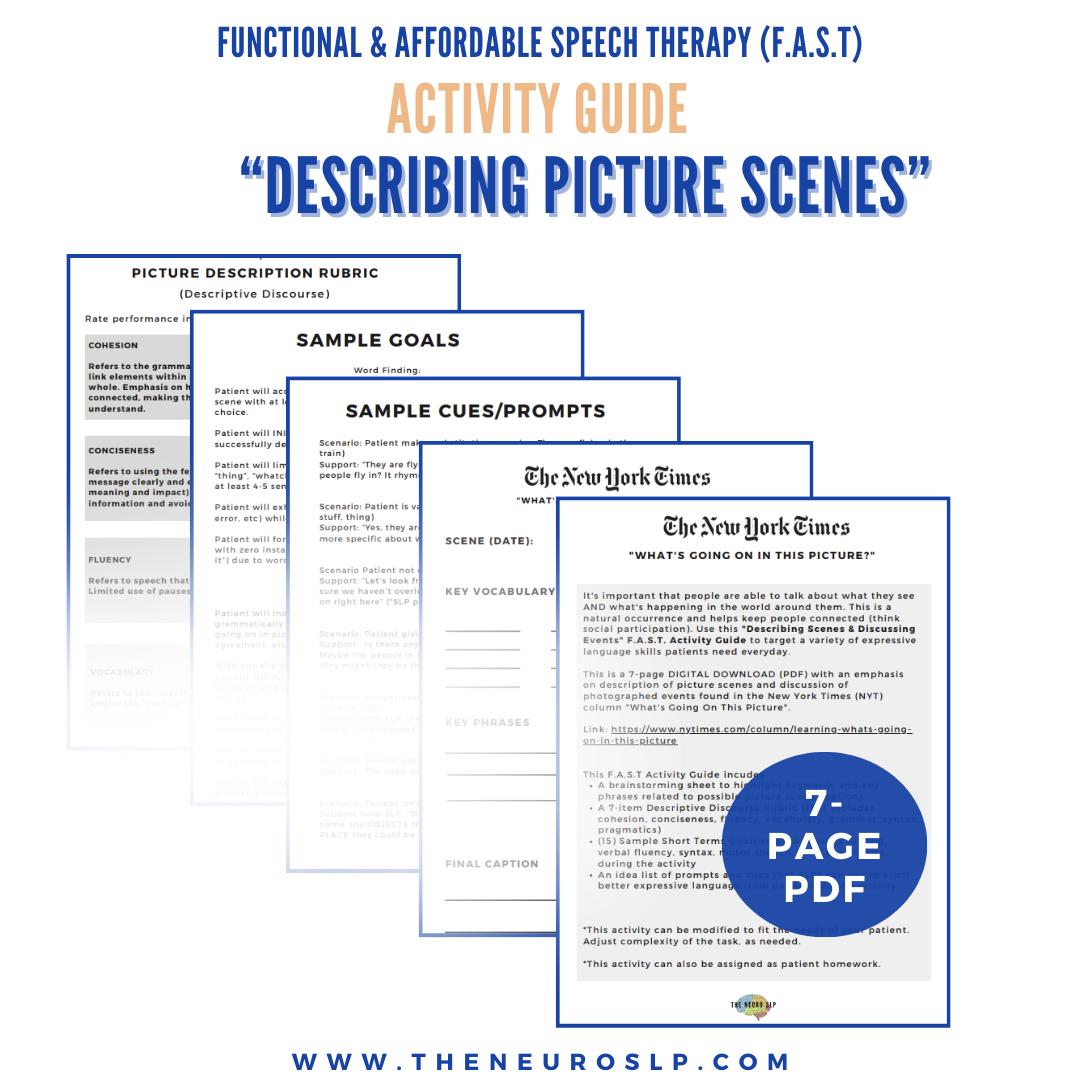
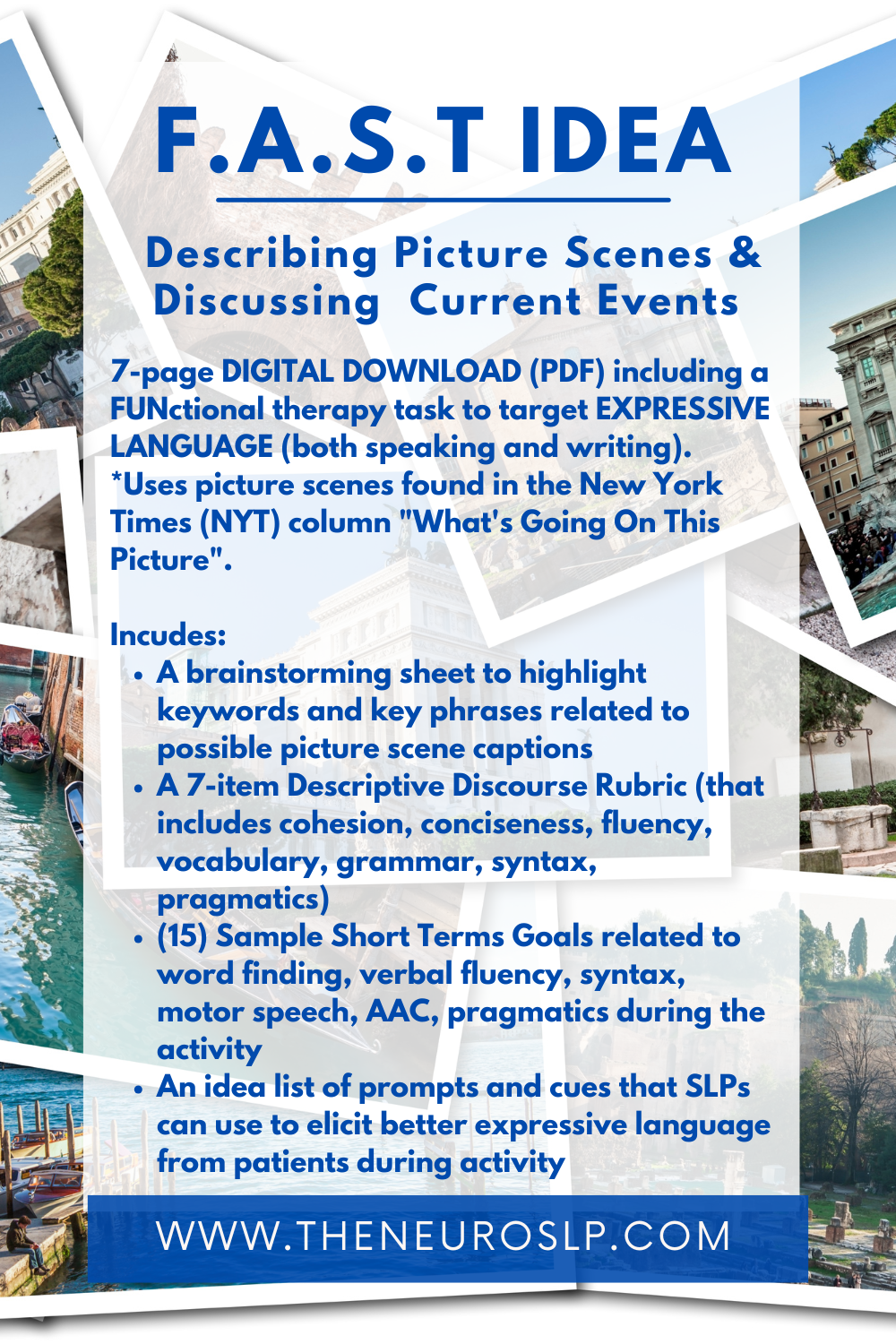


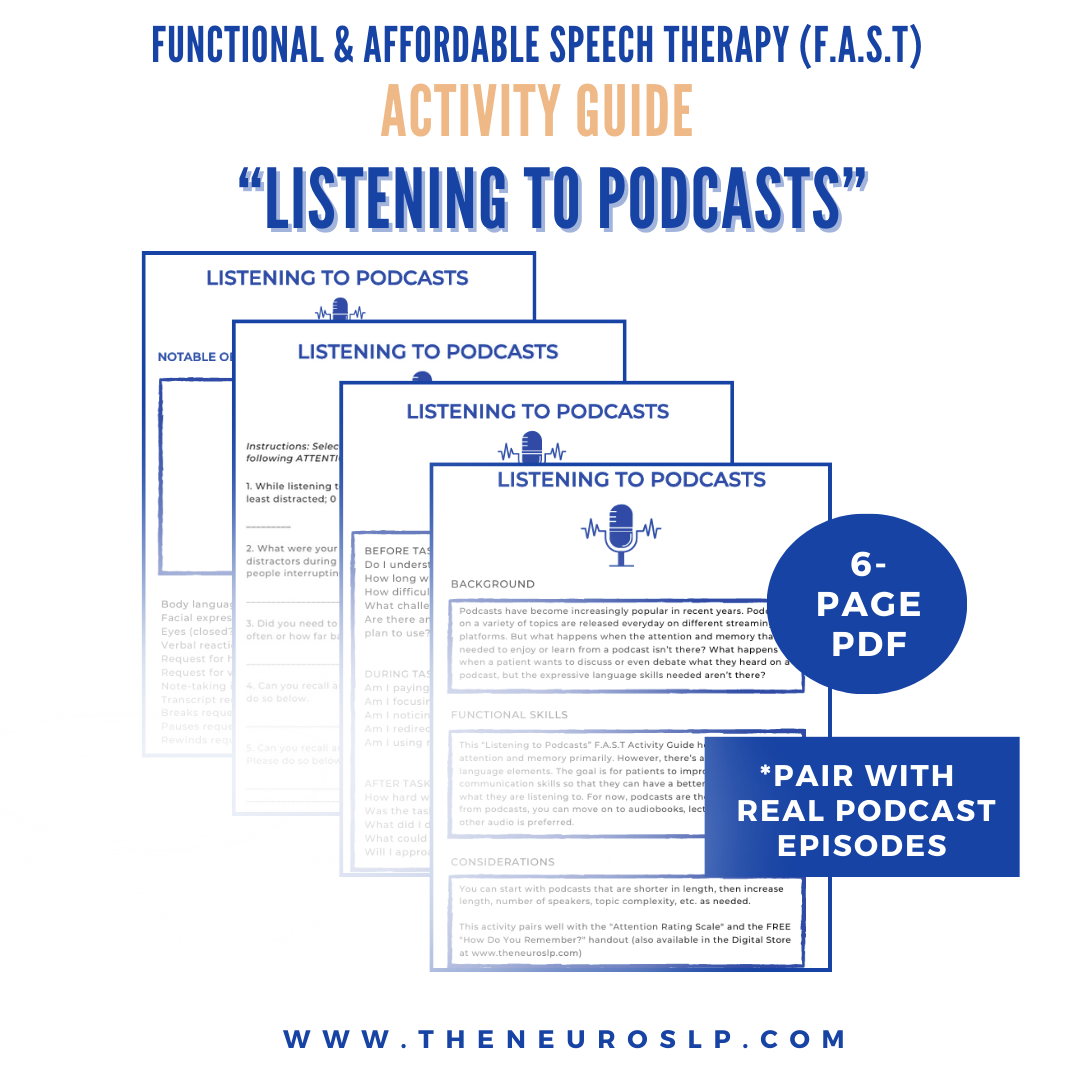
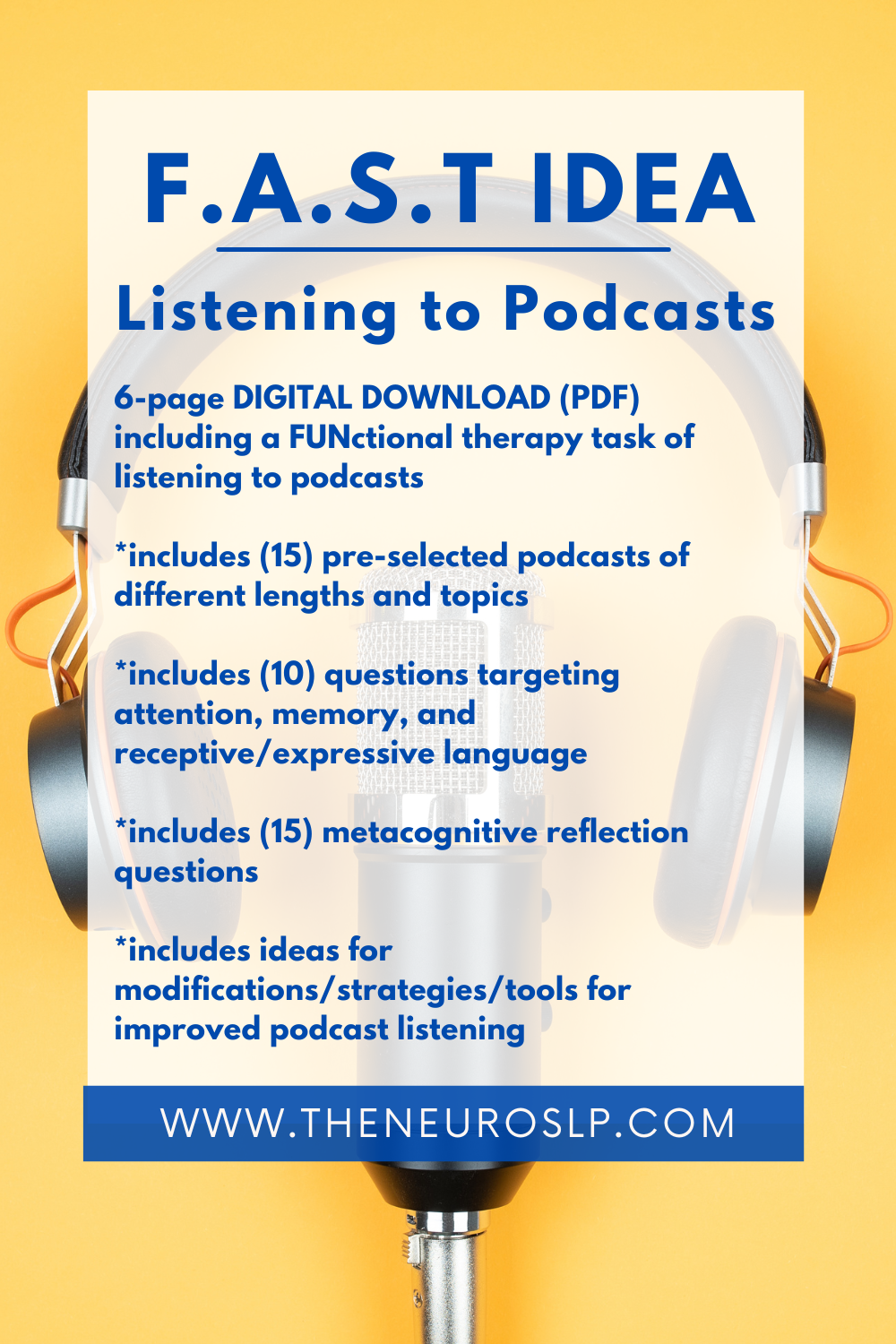



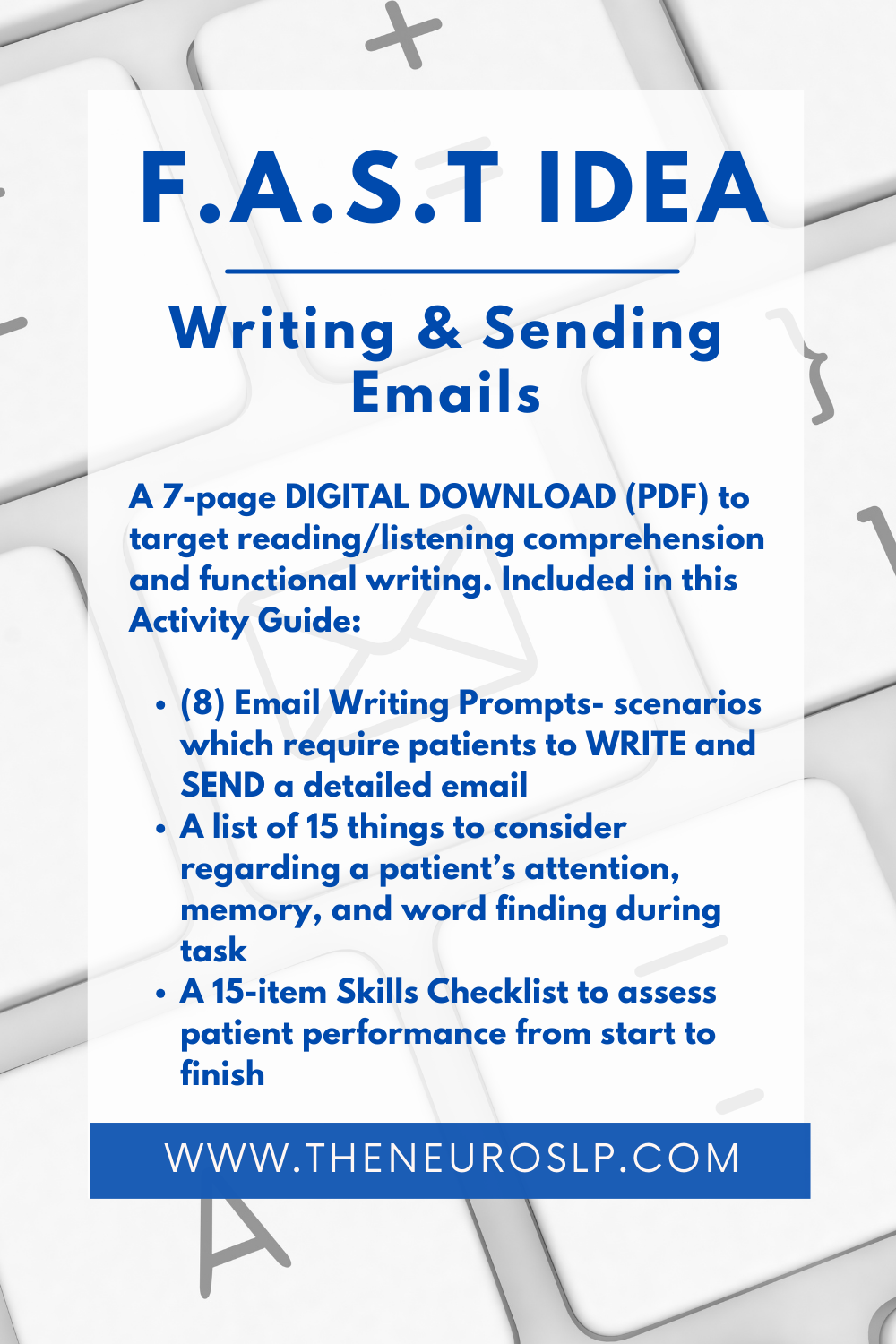
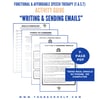

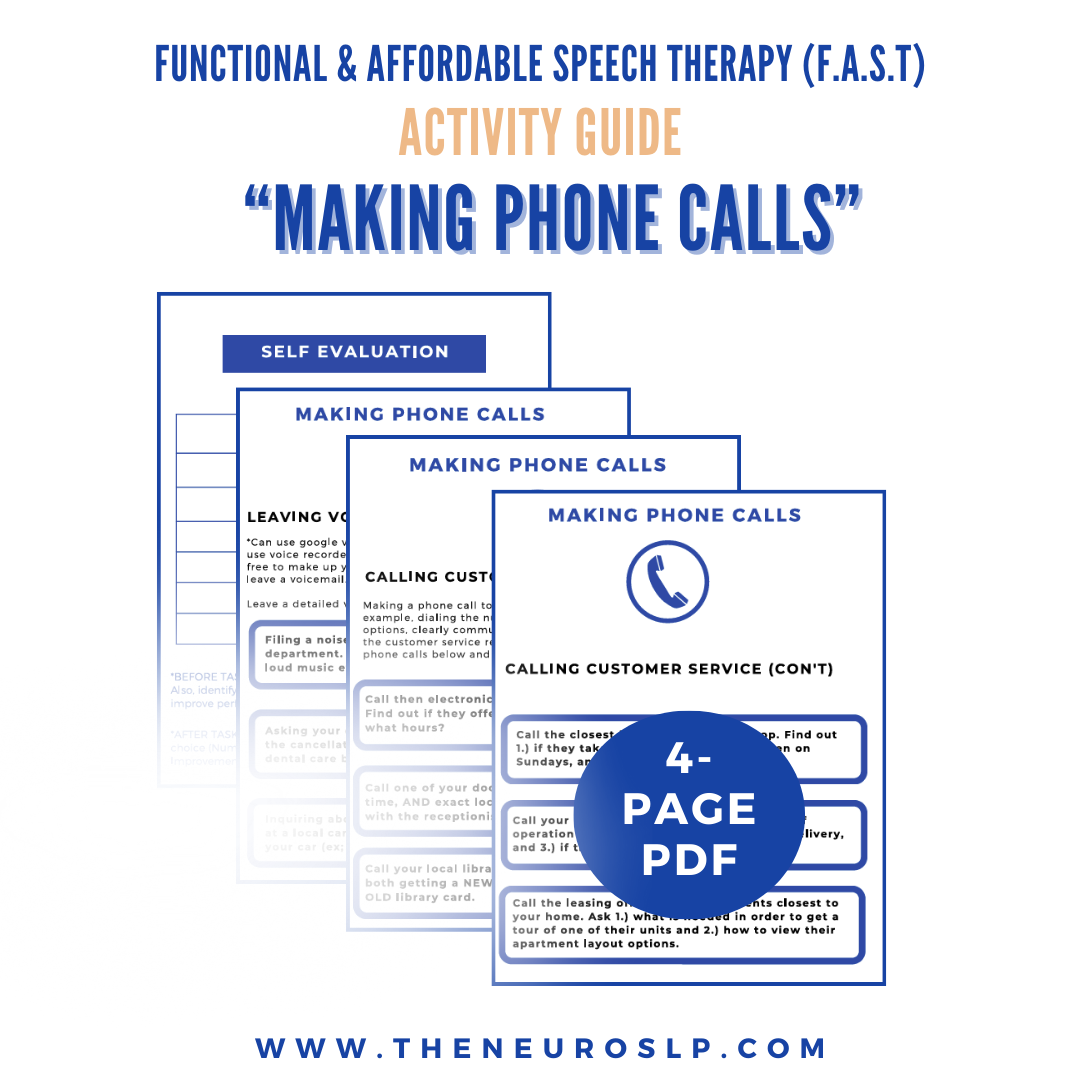
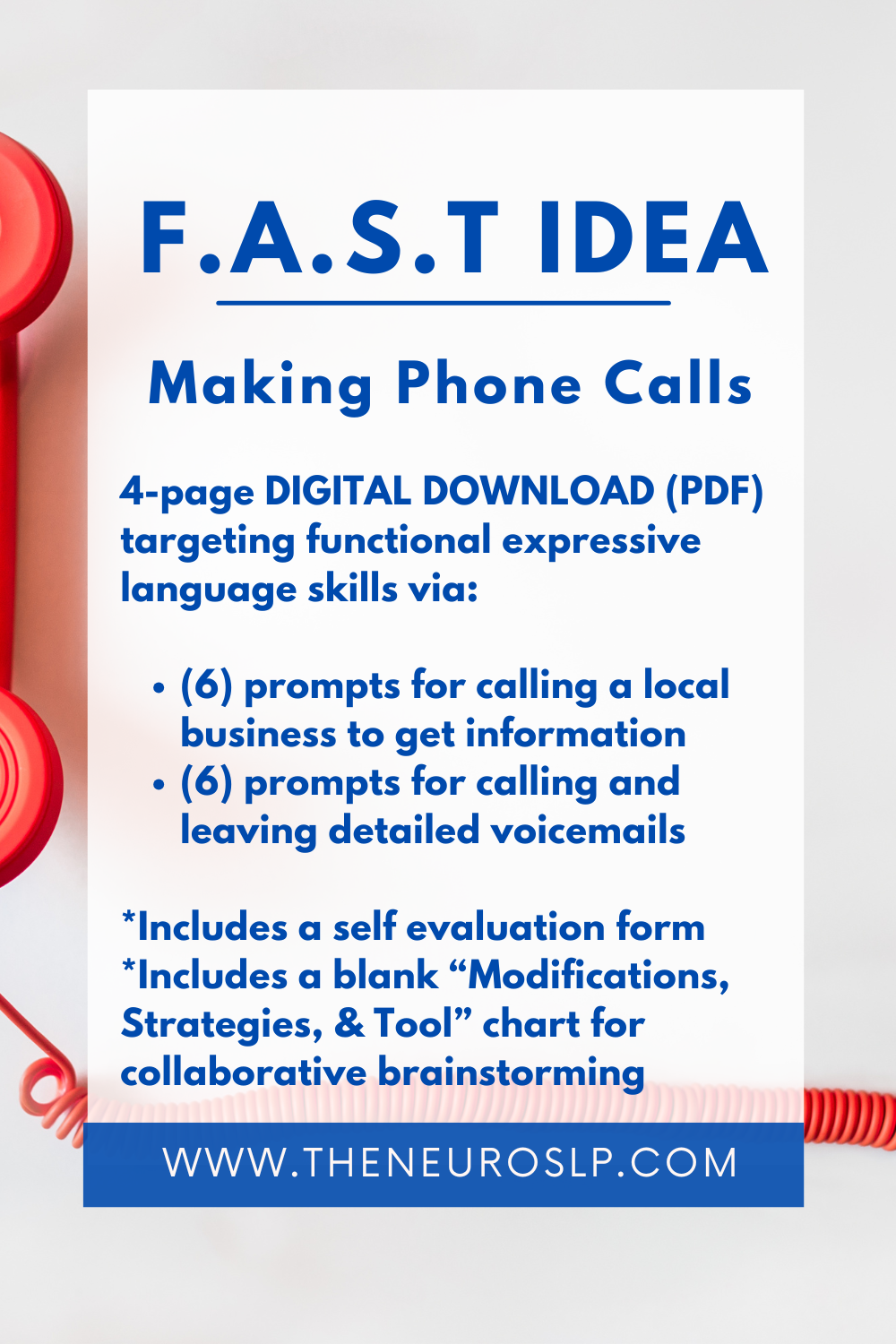


Comments ()